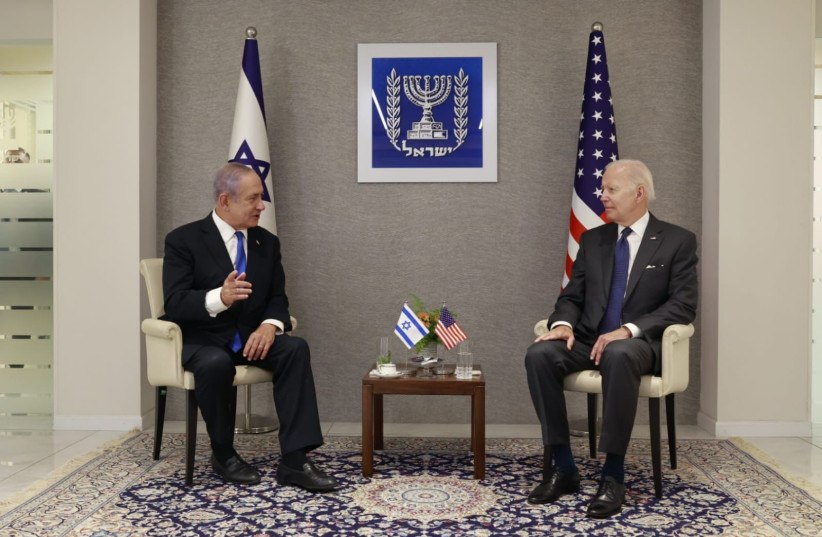Jewish extremist violence in the West Bank helped fuel the Biden administration’s anger at Israel over its judicial reform because it fears the overhaul will prevent the legal system from holding the attackers accountable, Efrat Council head Oded Revivi said on Wednesday.
“They perceive the reform as a tool that may hinder the prosecution of ‘Jewish rioters’ and erase incidents like Huwara,” said Revivi.
He referenced an incident in February in which Jewish extremists set fire to homes in a Palestinian town in the Samaria region of the West Bank.
Since then, extremists have also attacked towns in the Binyamin region, including a high-profile attack against the Palestinian town of Turmus Ayya in which a Palestinian man was killed and homes were torched.
Revivi spoke out after US Journalist Tom Friedman wrote a column in which he said that the US was reassessing its relationship with Prime Minister Benjamin Netanyahu’s government.

US reaction to West Bank violence
The Biden administration had been clear from the start that it opposed Netanyahu’s push for his government to overhaul the country’s judiciary, noting that such a process of change should be done through consensus.
Revivi referenced past statements US officials such as Secretary of State Antony Blinken and former Ambassador Tom Nides had made on the importance of a consensus-based process.
“The fire that ignited in Huwara compromised American neutrality regarding the reform,” said Revivi, who is a former Yesha Council foreign envoy. The head of the Efrat settlement in the Gush Etzion region, he is among the more moderate of the settler leaders.
Revivi explains that when the internal crisis surrounding Israel’s legal reform began, the United States adopted a cautious approach. “Secretary of State Blinken called for consensus building, Ambassador Nides emphasized the need for agreements, and President Biden urged finding a compromise. It was evident that while they were not supportive of the reform, the administration avoided taking a direct stance,” says Revivi.
He noted that the oppositional tone had increased in Biden’s interview with CNN, in which he said that Netanyahu’s government had the most extreme members that he had seen.
Revivi said, “Those who listened to President Biden or read Tom Friedman’s article cannot ignore the fact that their concerns lie not solely with the reform, but with the situation in Judea and Samaria.”
There was a time, he said, that shared US-Israel values were an anchor in the relations between the two countries. Those shared interests diminished during the Obama administration, Revivi said.
“Now, the Americans argue that the issue lies with the violent behavior of Jewish rioters against Palestinians. “Irresponsible statements by ministers also tarnish the shared values we once had. Some of us foresaw this harm in real-time.
“To regain neutrality in the White House regarding Israel’s internal affairs, we must once again demonstrate that the settlement enterprise is nonviolent, does not seek to harm anyone, and can contribute to the growth and well-being of both Palestinians and Israelis,” said Revivi.
